My third day in Ireland, in a jet-lagged, sleep-deprived haze, I approached the clerk at the Ballymun Ikea, where I was sojourning to stock up on kitchen supplies and throw pillows.
“Is there somewhere I can find a shopping cart?,” I inquired.
The clerk stared back at me with a mixture of confusion and what might have been disgust. After a thirty-second pause, she ventured brusquely, “A trolley?”
It was not the first miscommunication, and it certainly wouldn’t be the last. But, on less tired occasions, differences in dialect often proved more amusing than uncomfortable. Several weeks later, on a weekend trip to the West with my fellow Mitchell scholars, our tour bus stopped for a break in its daylong circuit around the Ring of Kerry. I headed into a Centra, where I found myself at the same instant espresso machine as an older local man in a gray tweed cap. He spoke a few words to me in Irish, and although I didn’t understand them, I could tell by the friendliness of his intonations that he meant them as a greeting.
“Oh,” I responded without thinking, “How’s it going?”
“How’s it going!” he exclaimed incredulously, shaking with laughter. “How’s it going. . . How’s it going!” It was clear that my greeting was as foreign to him as his was to me. Struck by the strangeness of the situation, I laughed along with him. Afterwards, we introduced ourselves, shook hands, and wished each other a good day. The unexpected humor provided an opportunity for human connection.
In the classroom, I had to learn an entirely different vernacular altogether. The Mitchell Scholarship gave me the opportunity to switch disciplines from English to philosophy, and, as I quickly realized, the two areas of academic inquiry often employ language in radically divergent ways. On the first day of my “Continental Philosophy” survey course, I struggled to follow the three-hour lecture. The words the professor was scrawling on the board—“other,” “encounter,” “recognition”—ought to have been familiar, but I got the sense that their ordinary meanings had been replaced by specific technical definitions beyond my grasp. It was all I could do to frantically take down the professor’s exact words in my notebook, hoping that something she was saying would prove useful (or at least intelligible) later on.
In the meantime, I was also taking “French for Research Purposes,” a course meant to enable graduate students without prior knowledge of the language to learn how to read French competently within a few weeks, without necessarily being able to speak or listen to it. Geographically, Ireland proved particularly well-situated for this task. When rote memorizing French grammar became dull, it took just thirty euros and a few hours on a Ryanair flight to get to Nice, where I spent the weekend trying out my new reading comprehension skills on museum wall texts and farmer’s market produce labels.
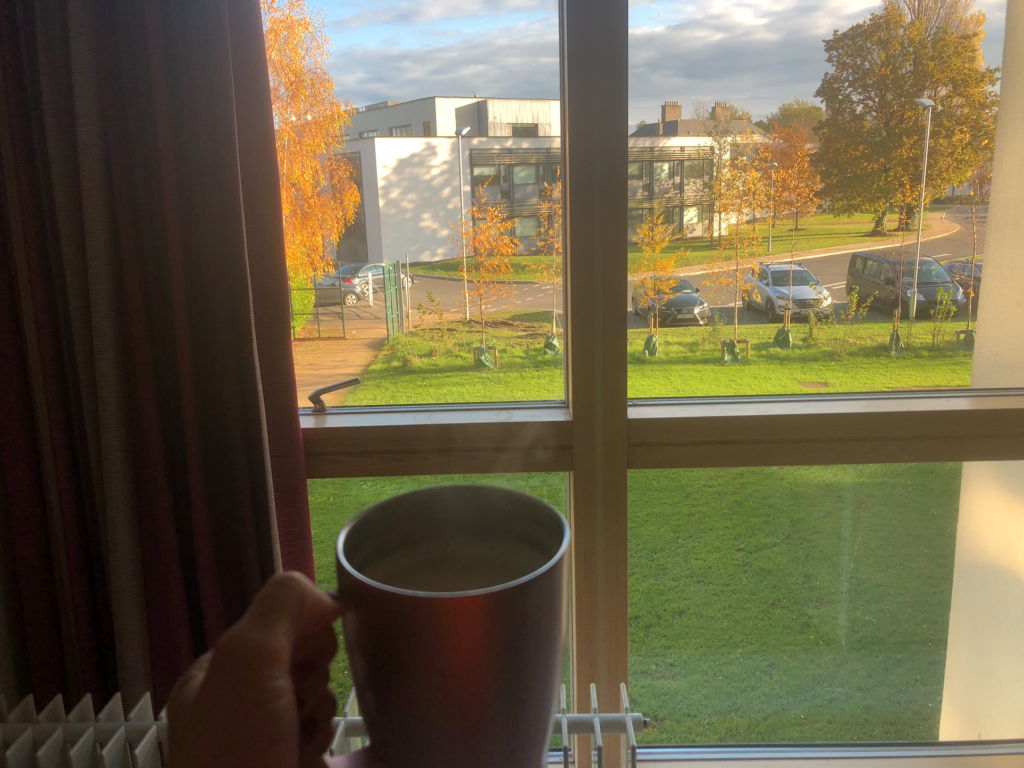
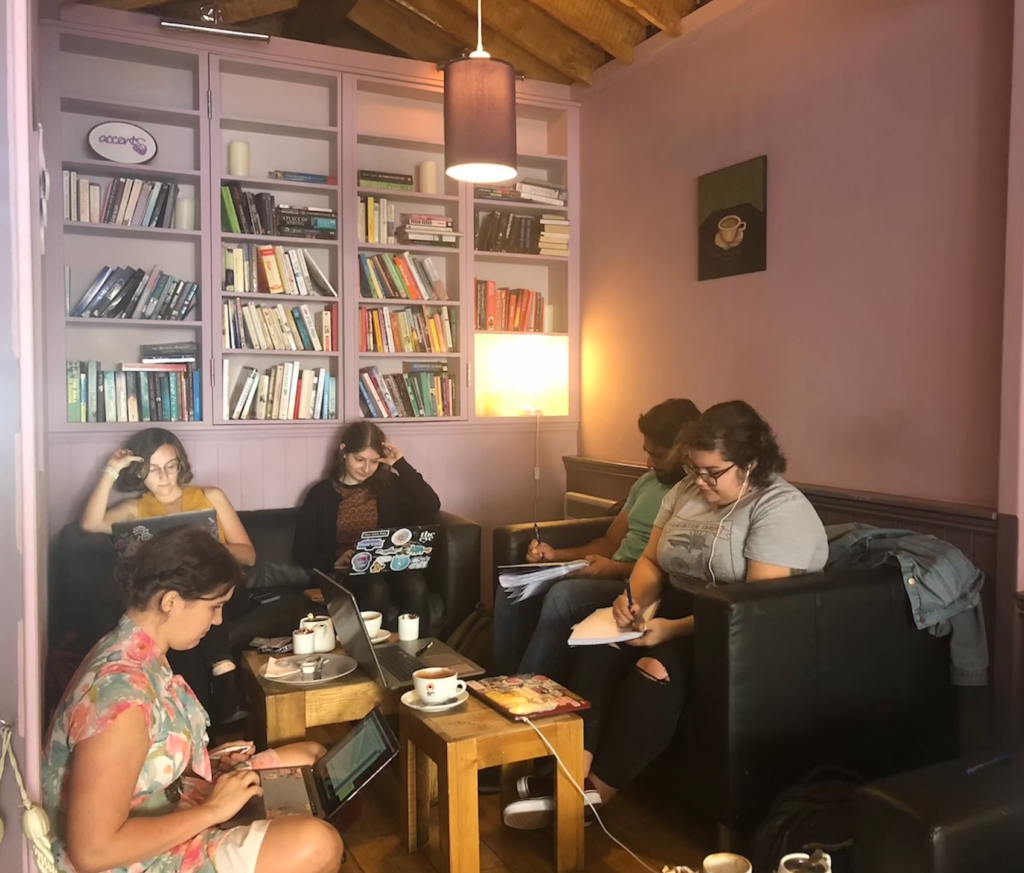
In the final week of classes, I sat down to type up all of my handwritten notes from the semester. As I reread my notes from that first “Continental Philosophy” class, I realized I was doing so with a newfound fluency. Without fully noticing the moment of transition, I had become someone who could deploy terms like “phenomenology” and “dialectics” while appreciating their intellectual histories and shades of nuance. Equally, I could now effortlessly substitute “lift” for “elevator,” “chips” for “fries,” “fill-it” for “fill-ay.” In my term papers, I wrote “theatre” instead of “theater” and kept my end punctuation outside of my (single) quotation marks.
There is still so much I have left to learn in the next few months, within and beyond the classroom, but if my phone now autocorrects “let’s” to “lads,” that seems like a good start.
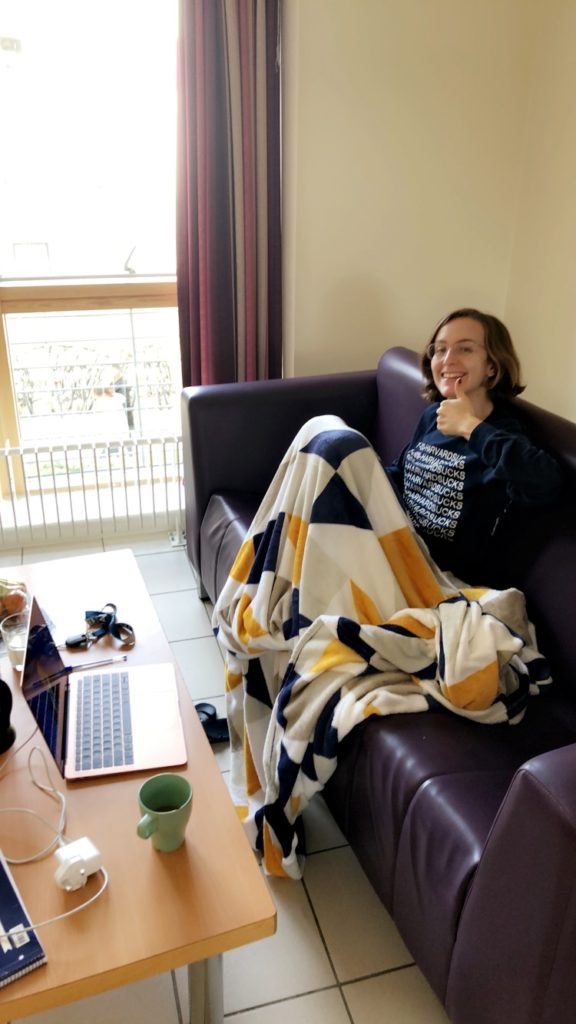
Being expats means you have to watch the Democratic Debate first thing in the morning instead of at night 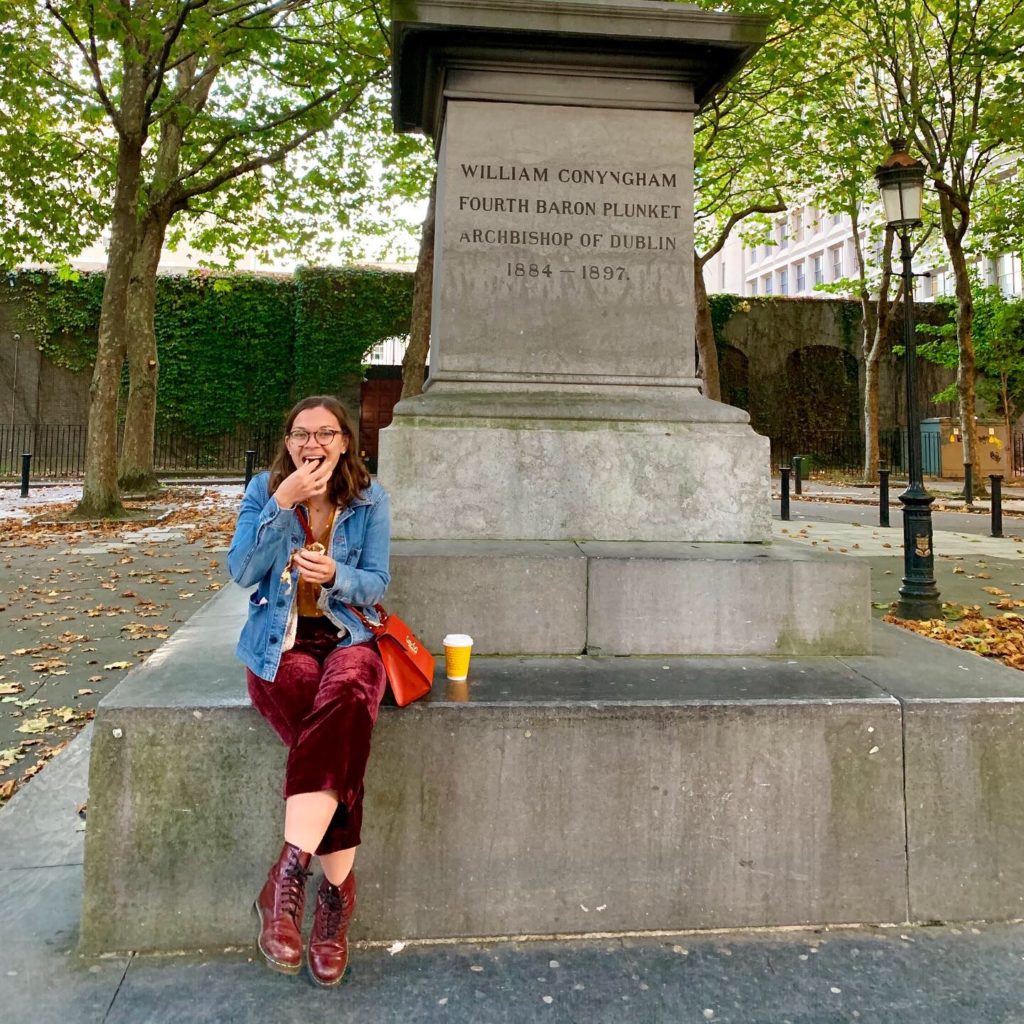
Enjoying a muffin near one of Dublin’s many commemorative statues 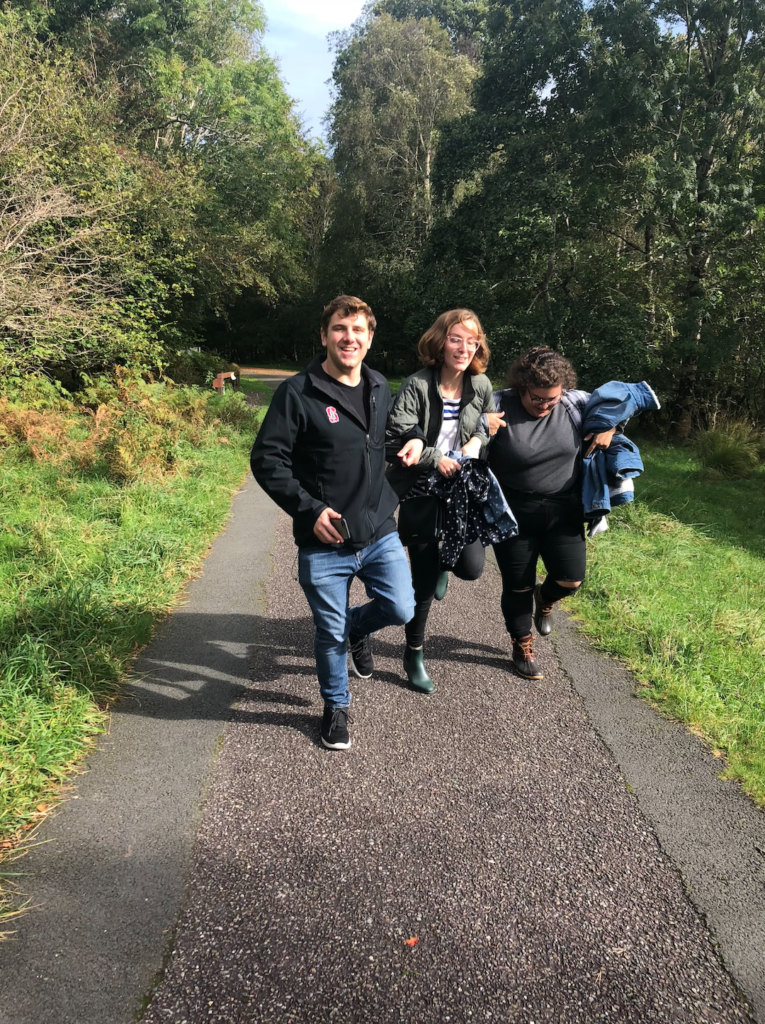
Lots of shenanigans ensued on our group trip to Kerry 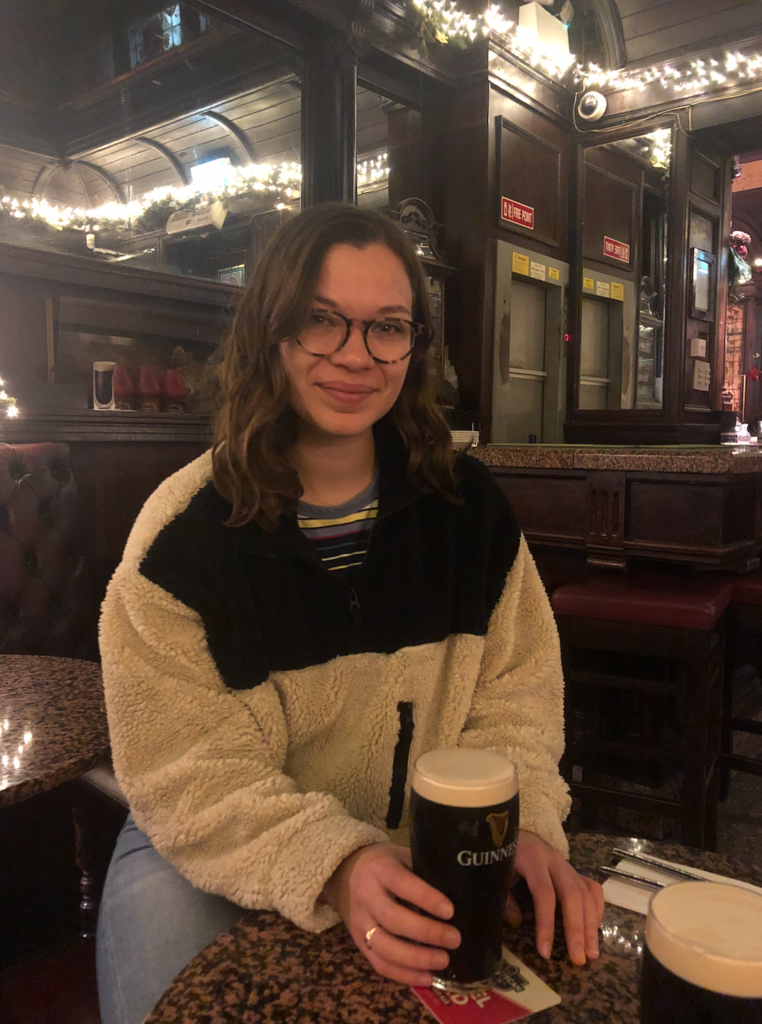
The Stag’s Head in Dublin offers the perfect ambiance to enjoy a pint 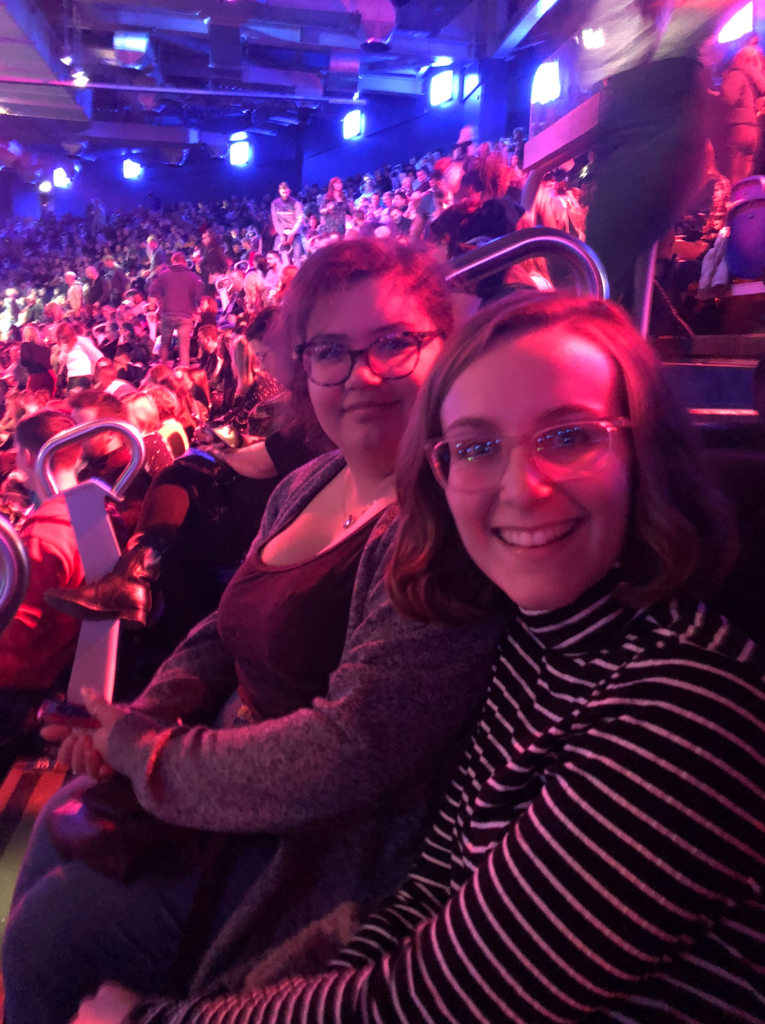
Seeing Bray native Hozier in concert with the UCD ladies was definitely a highlight 
We love to eat M&S brand Percy Pig sweets and all of their spinoffs 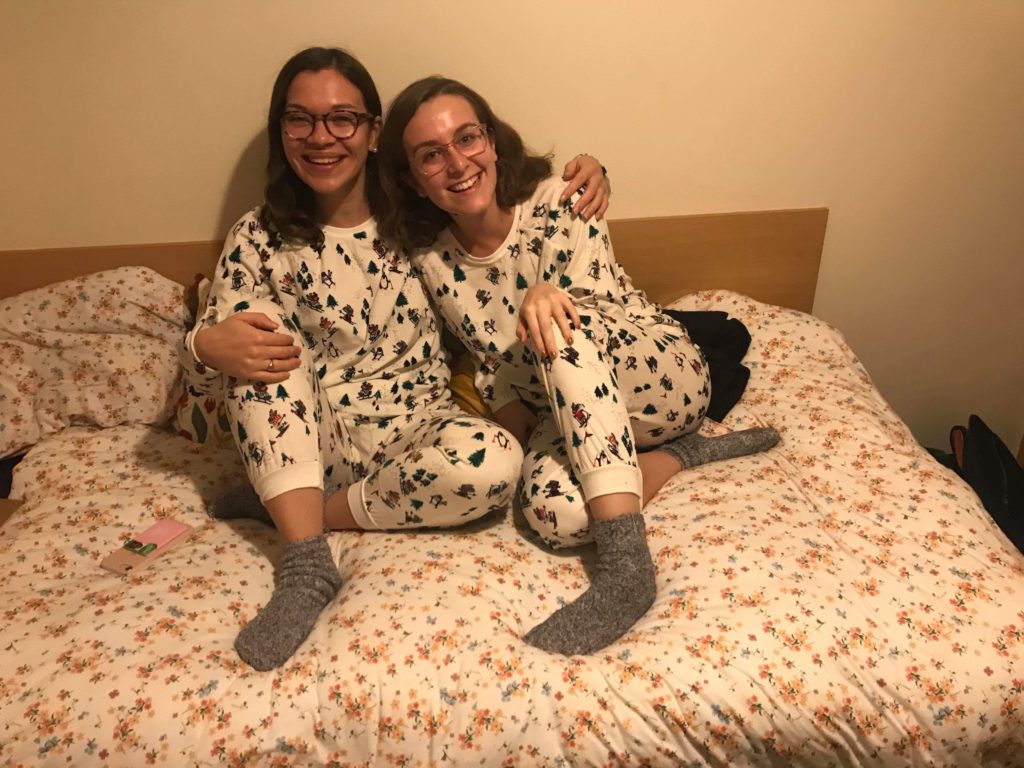
We found these matching Christmas pajamas for just 10 euros at Penneys at the Dundrum Shopping Centre 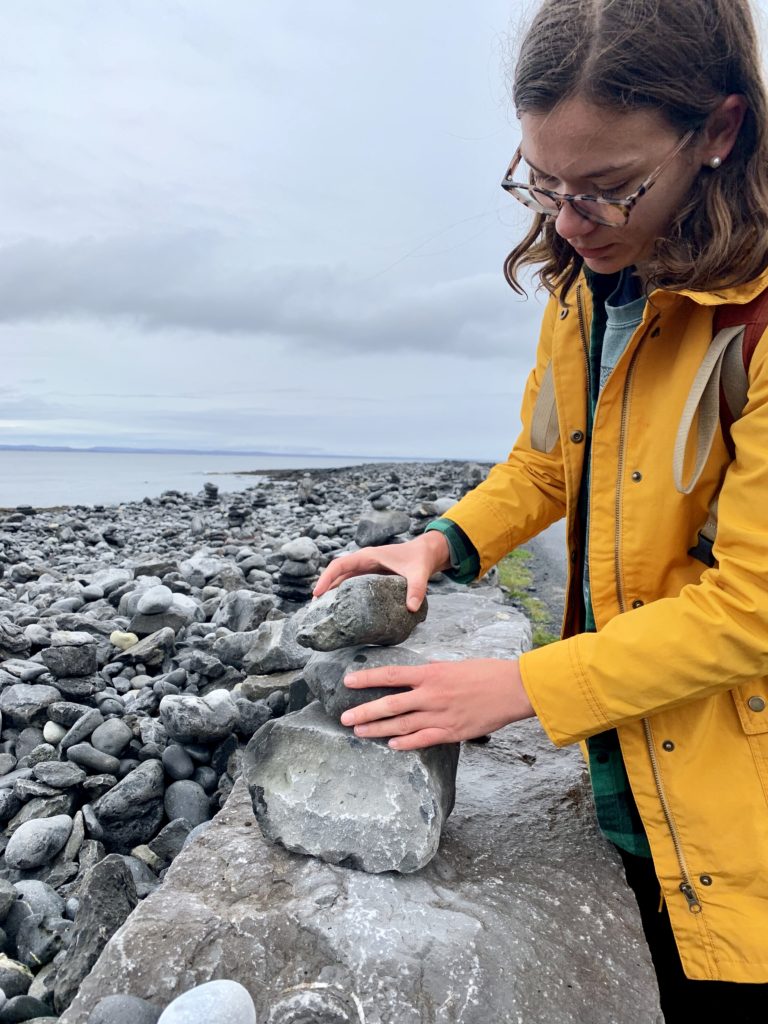
Balancing a cairn during a break from cycling in the Aran Islands took a lot of concentration
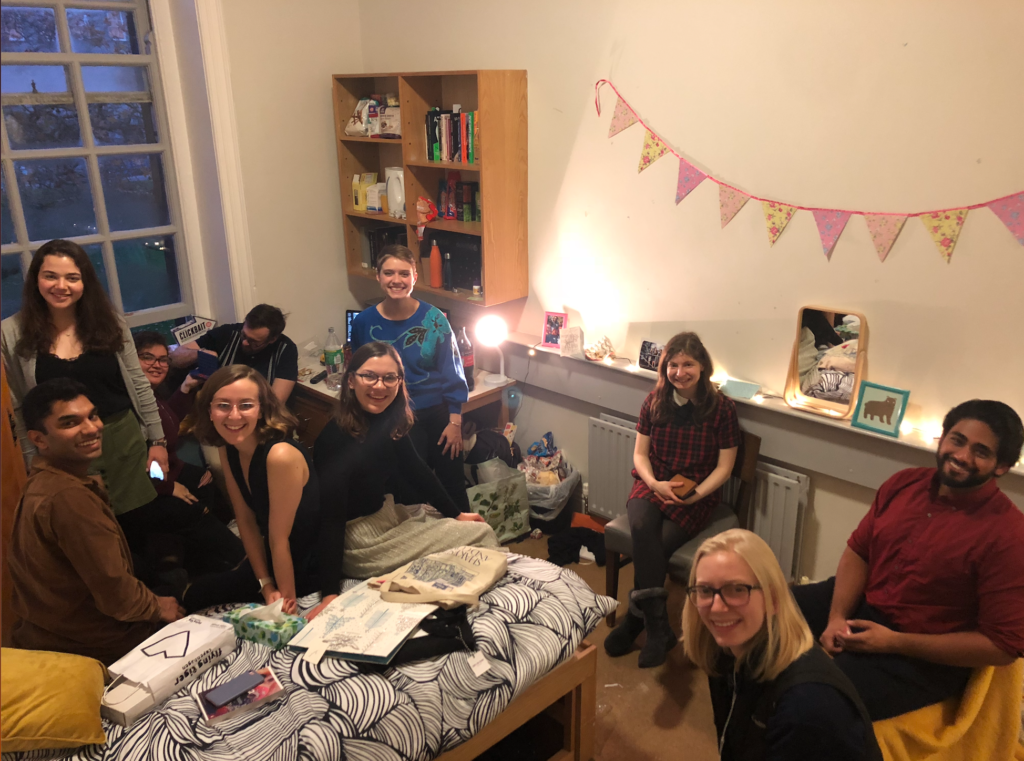
We finished off 2019 with a Mitchell holiday party and Secret Santa gift exchange
